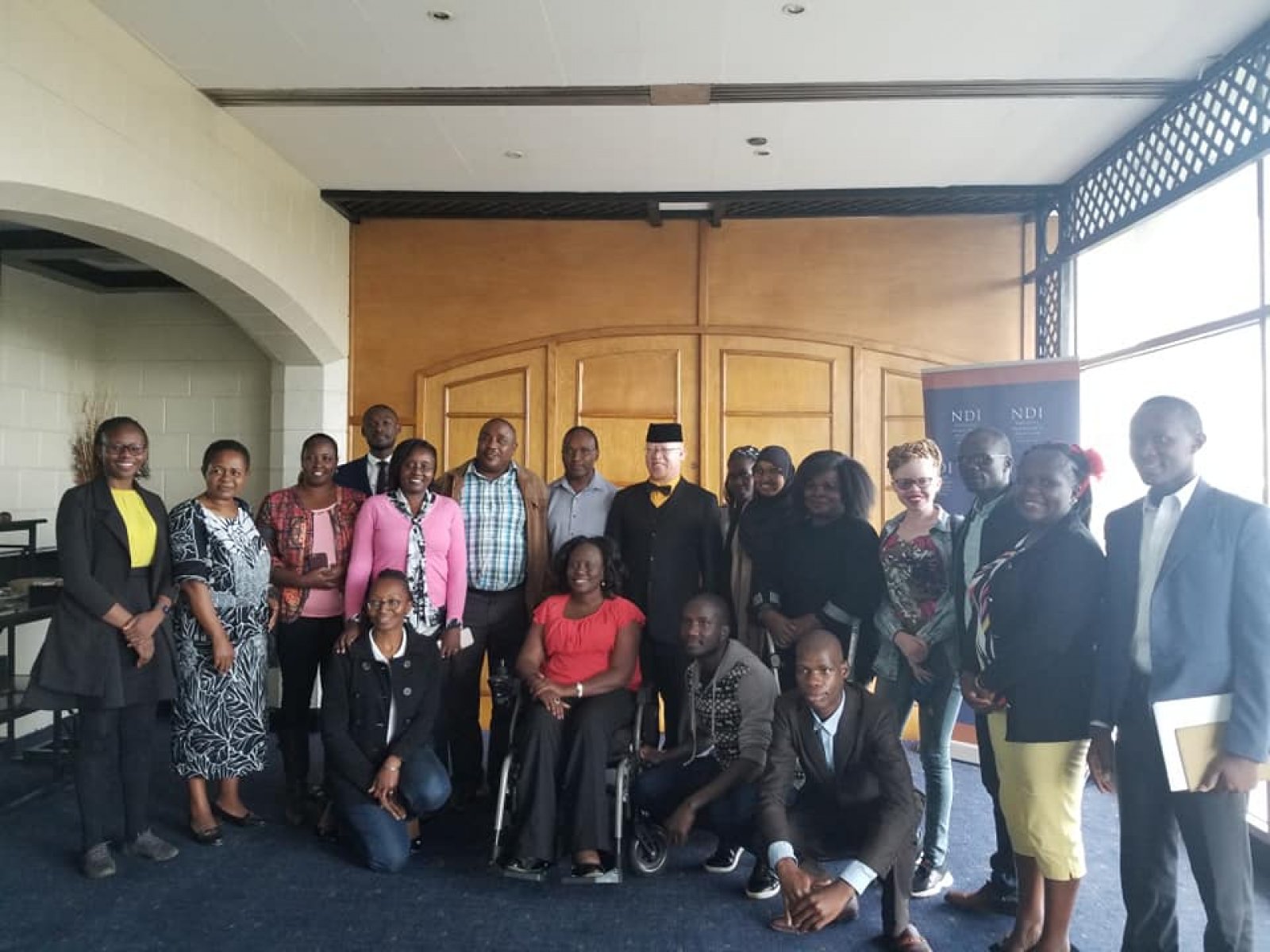
Disability and human rights activists convened for the first monthly disability and human rights forum in Nairobi. The forum supported activists to build relationships, identify overlapping priorities, and collectively advance initiatives around inclusive budgeting and development plans as well as inclusive and accessible elections.
SHARE
First invoked by the South African disability rights movement in the 1990s, “Nothing About Us Without Us” became the clarion call of activists organizing to overcome systemic oppression and empower persons with disabilities to take control over decisions affecting their lives. Since then, the concept has anchored the work of the global disability rights movement and its demand for the full and equal inclusion of persons with disabilities. Despite some progress on making its voice heard, the disability community – more than 15 percent of the world’s population – remains largely excluded from public life and is underrepresented in parliaments and political parties. Stigma and stereotypes, including the belief that persons with disabilities are incapable of contributing to society, continue to present significant barriers to persons with disabilities exercising their rights and participating politically. Likewise, the COVID-19 pandemic disproportionately impacted persons with disabilities, reinforcing barriers to health, education and livelihoods. In response to these challenges, a new refrain emerged at the recent 2022 Global Disability Summit where disability leaders and activists agreed on the need for “Nothing Without Us!”
KEDIPA 2.jpg

As a means of fostering accountability, the Summit asks participants to submit targeted and specific inclusion commitments. The 2022 Summit garnered 1,544 new commitments from over 150 countries. Building on a set of 2018 commitments, NDI made a variety of additional commitments to higher standards of inclusion and participation of persons with disabilities in programs; and greater internal organizational diversity and accessibility. The Summits have also enabled NDI to look at its own structures and systems to identify ways the organization can be more inclusive leading to new disability-inclusive monitoring and evaluation practices, budgeting for reasonable accommodation and prioritizing accessible information and online spaces. NDI’s 2022 commitments include:
- Promote accessible information and access to democratic processes and elections, and promote inclusion and diversity in political representation;
- Promote underrepresented groups and address intersectionality;
- Support partnerships with other social movements;
- Increase funding to support OPDs’ priorities;
- Mainstream OPD engagement across funding;
- Support the building of a diverse disability rights movement and OPDs, including underrepresented groups;
- Commit on the need to involve persons with disabilities in countries under stress and with shrinking civil space; and
- Support awareness-raising to combat attitudinal barriers, either OPD-led or with the active involvement of OPDs.
Many of these commitments are already being integrated into NDI programs. For example:
- In Kenya, NDI convened OPDs representing diverse disabilities and identities to address overlapping and intersectional priorities, while supporting the disability rights movement to be more inclusive of underrepresented groups including women with disabilities and persons with albinism.
- Through the Equal Rights in Action fund, NDI is increasing funding to OPDs to address their priorities related to accessible and inclusive elections, improving access to justice and strengthening the leadership of women with disabilities.
- In Georgia, North Macedonia and Zambia, NDI is partnering with OPDs to strategically engage political parties as a way to promote inclusion and diversity in political representation while combating attitudinal barriers about leadership roles persons with disabilities can play in political processes.
NDI’s Summit commitments reaffirm disability inclusion as a priority. They encourage NDI to offer persons with disabilities new forms of support as they engage politically and demand the rights, responsibilities and respect afforded all citizens to achieve “Nothing Without Us.”
Author: Whitney Pfeifer, Program Manager, Citizen Participation and Inclusion
###
NDI is a non-profit, non-partisan, non-governmental organization that works in partnership around the world to strengthen and safeguard democratic institutions, processes, norms and values to secure a better quality of life for all. NDI envisions a world where democracy and freedom prevail, with dignity for all.


